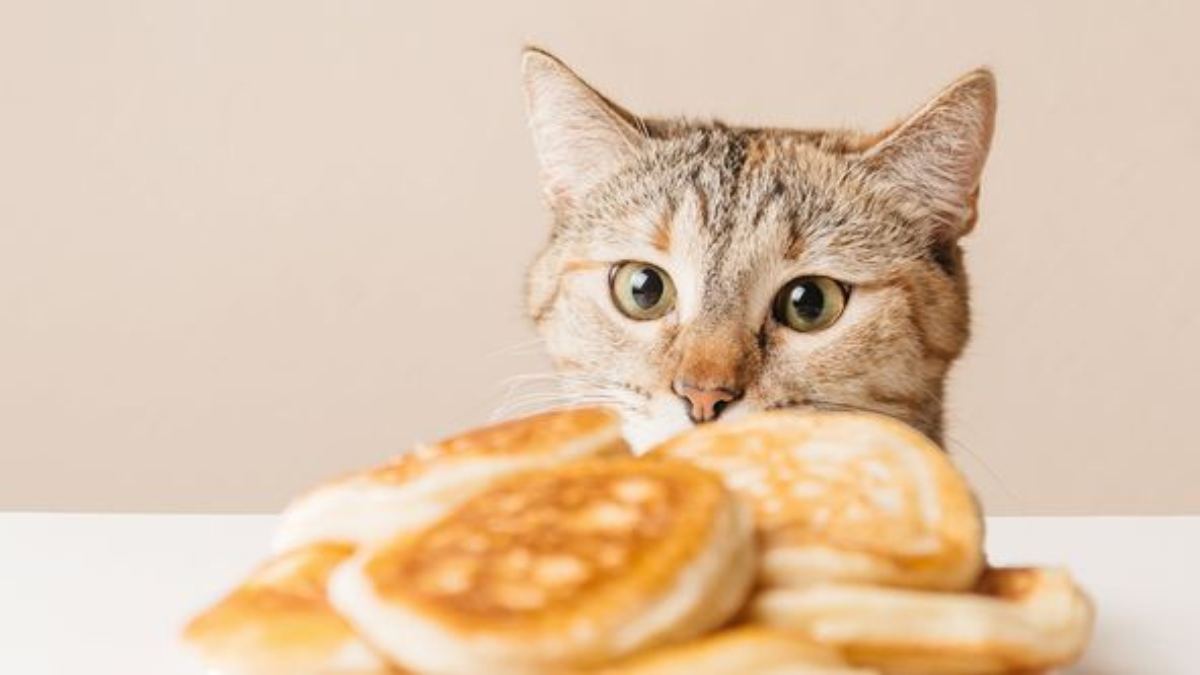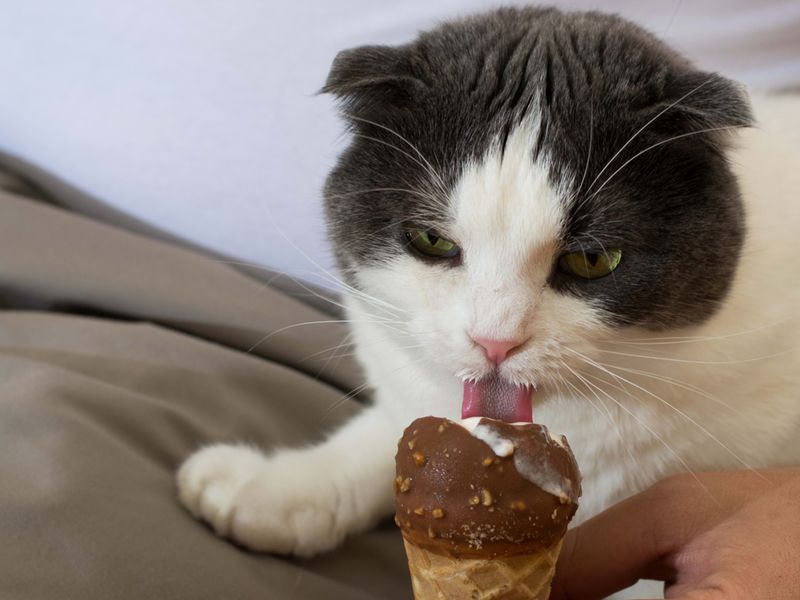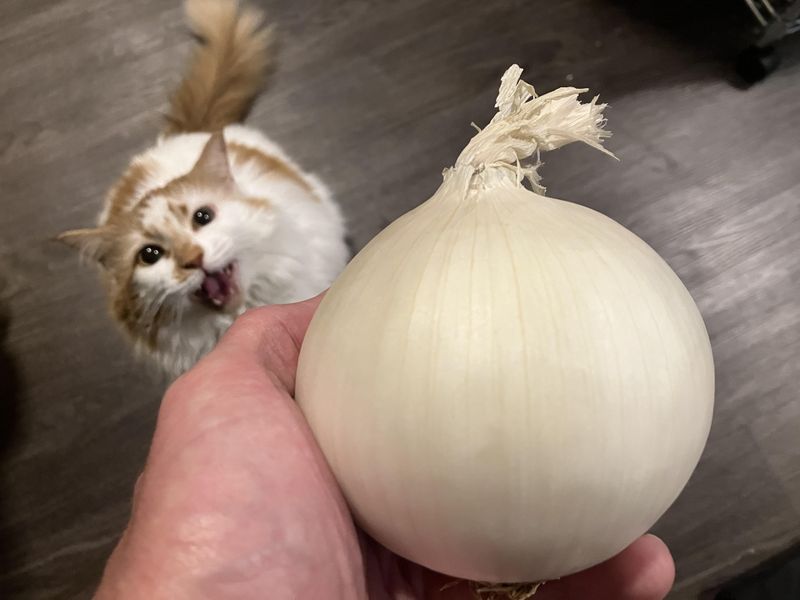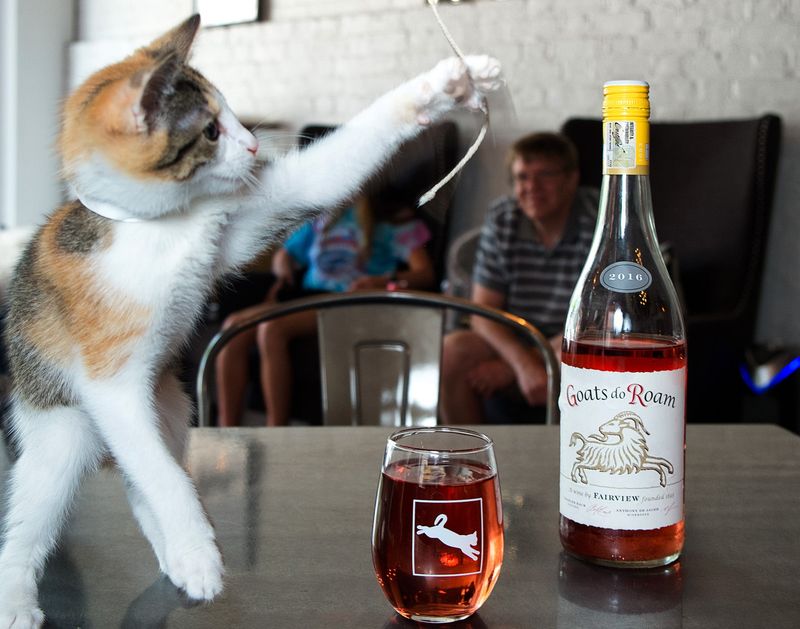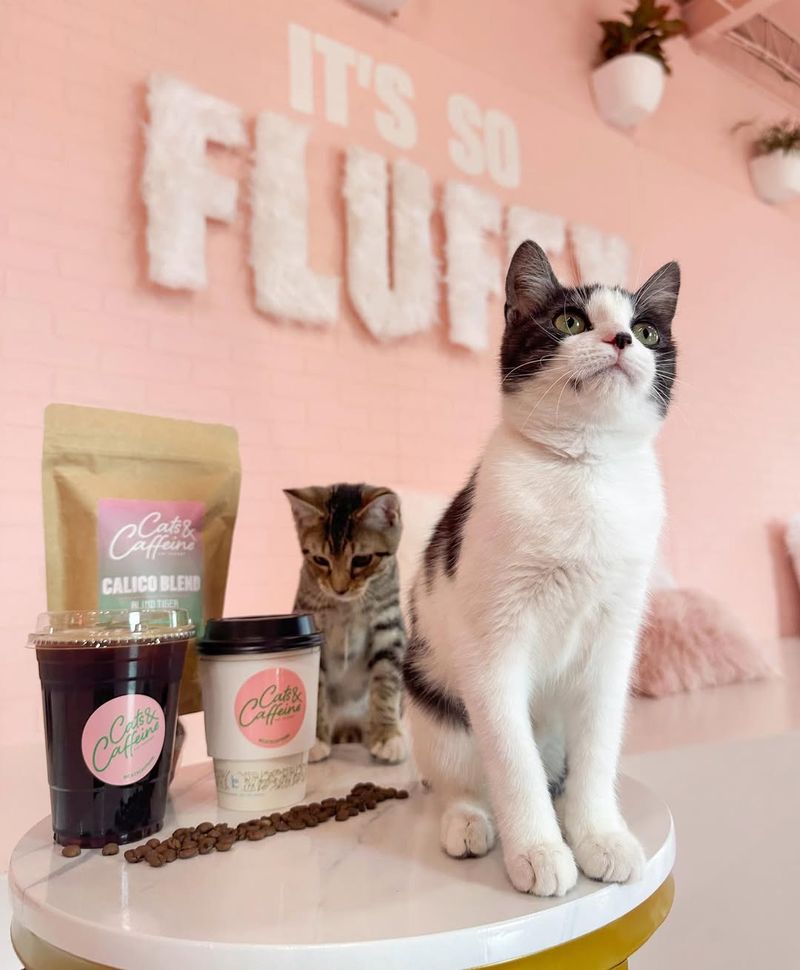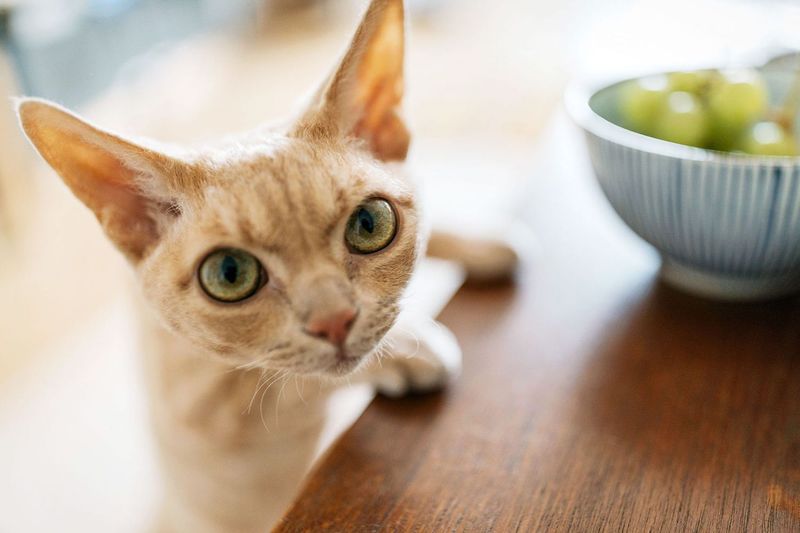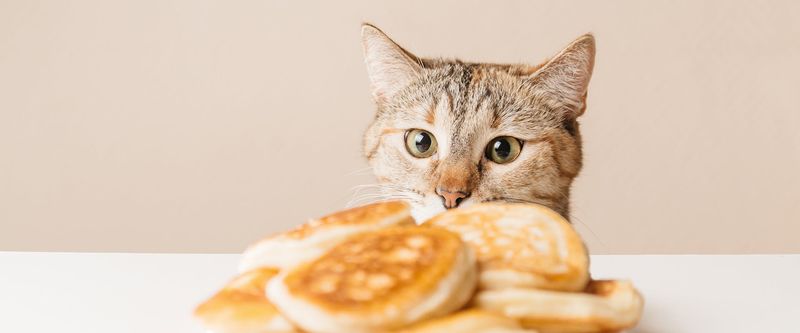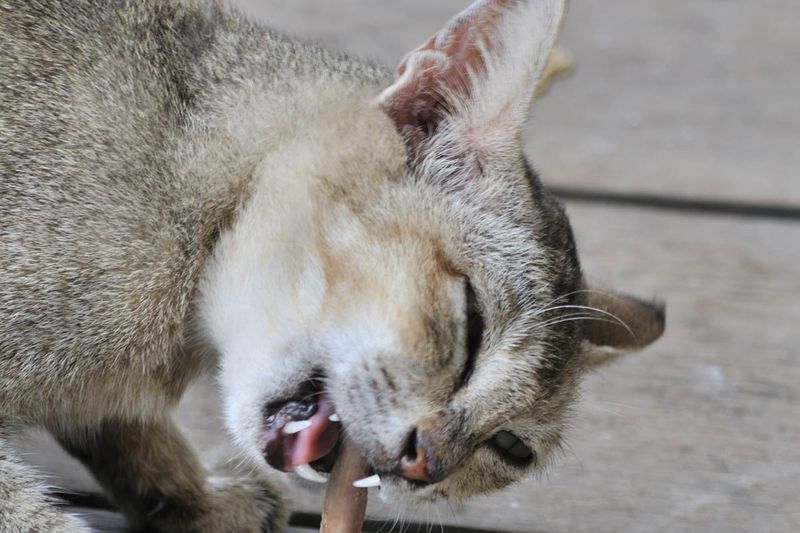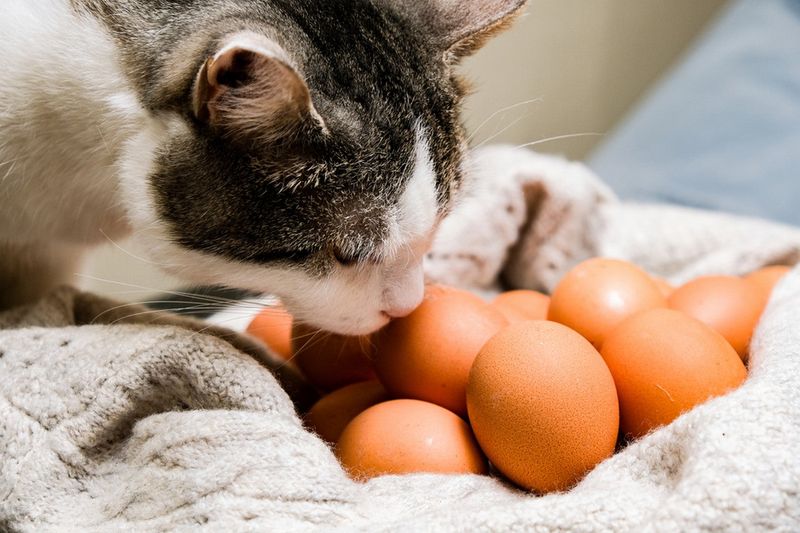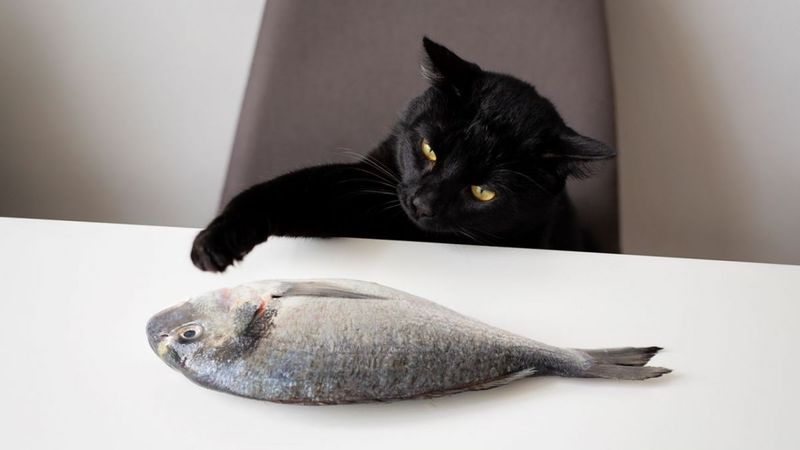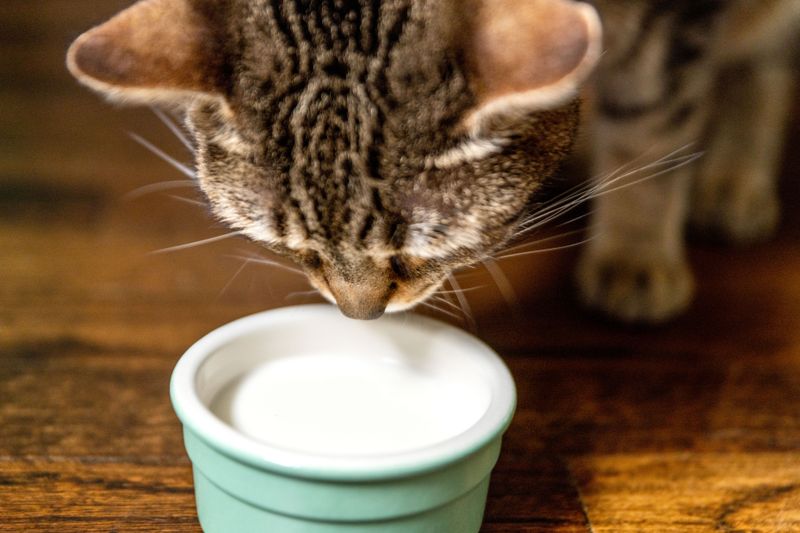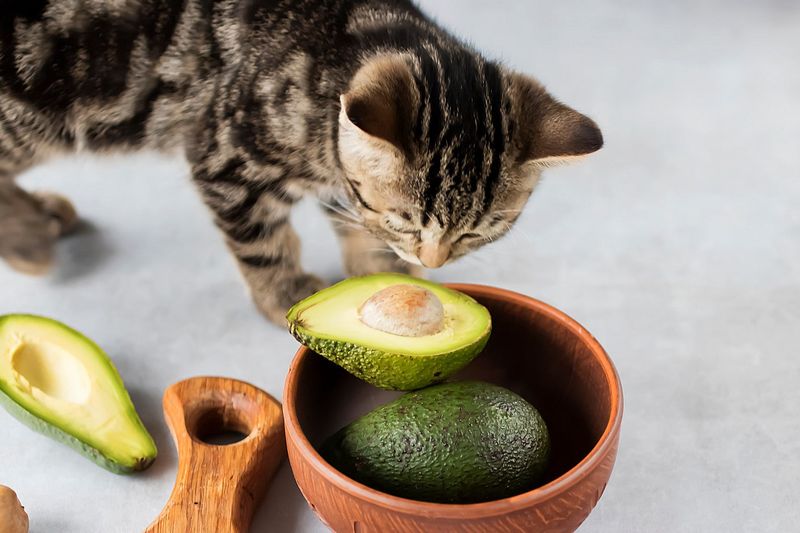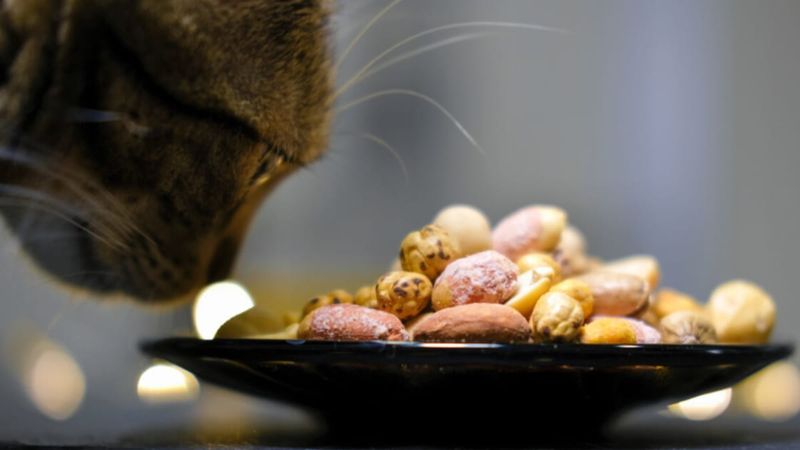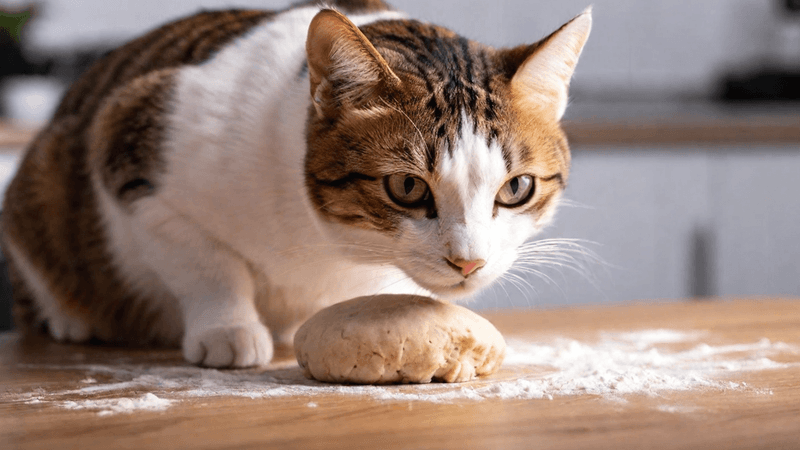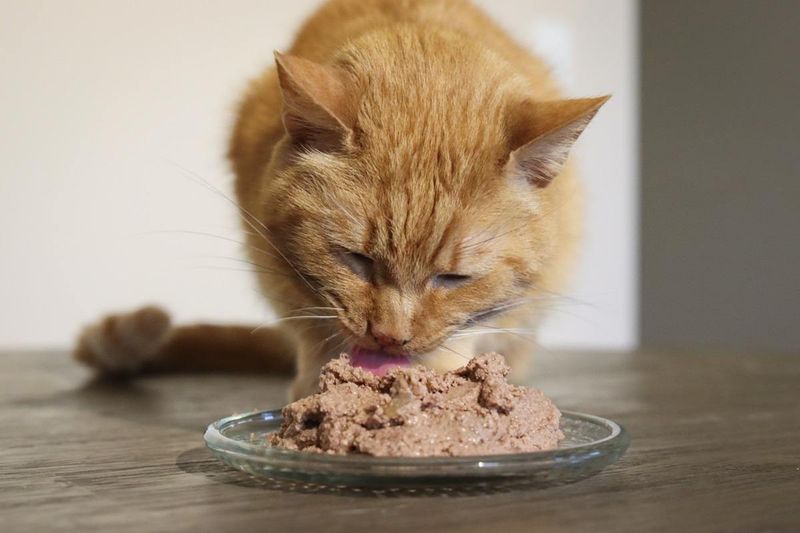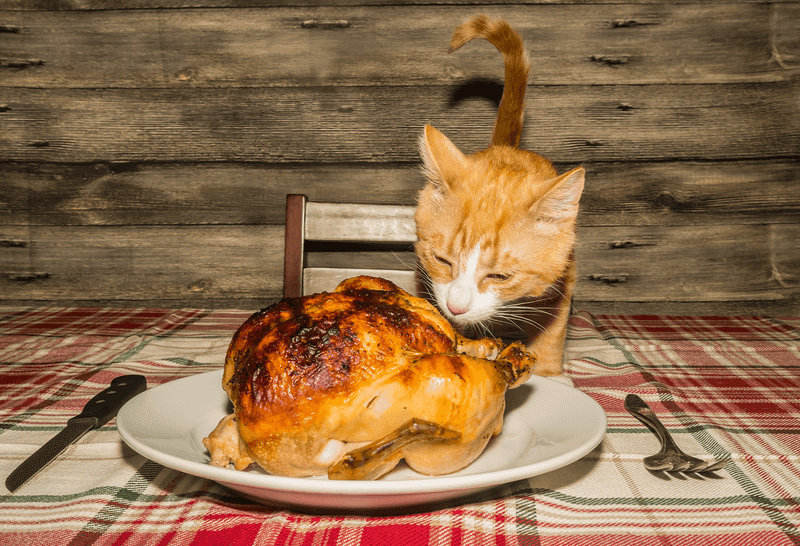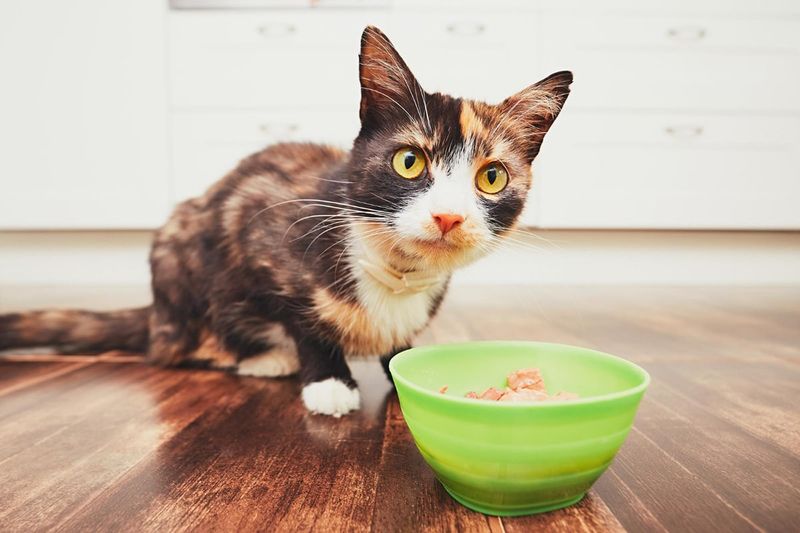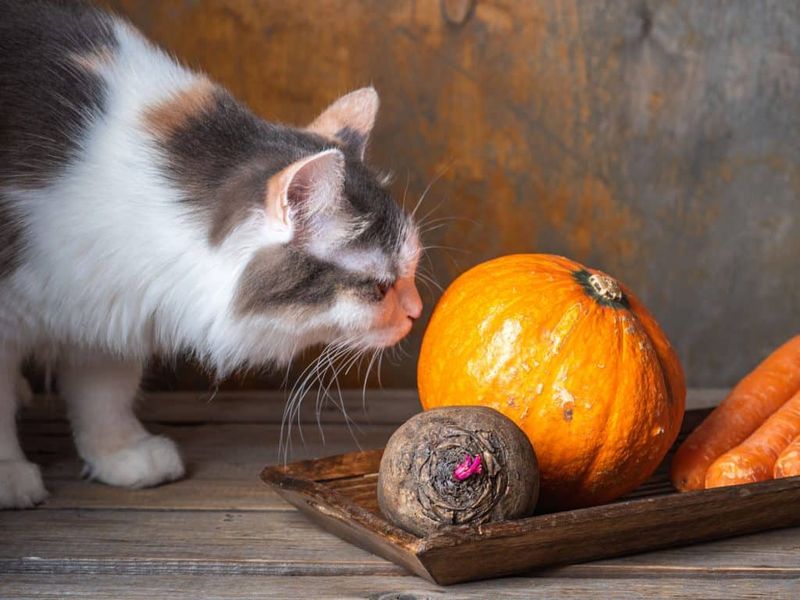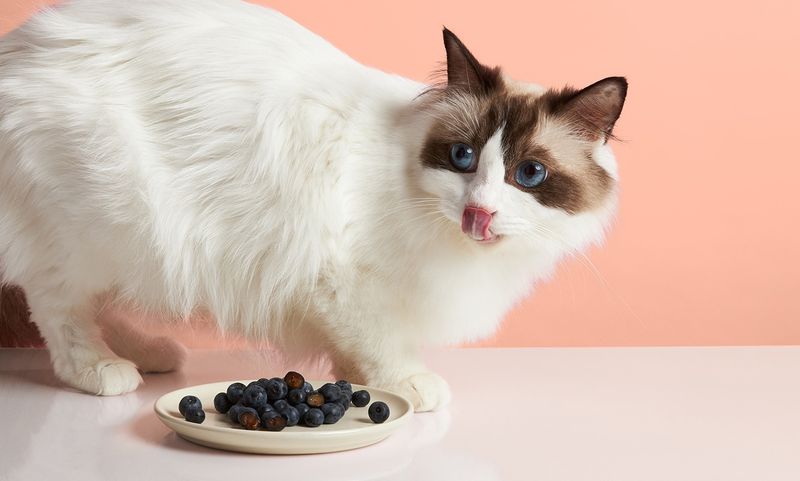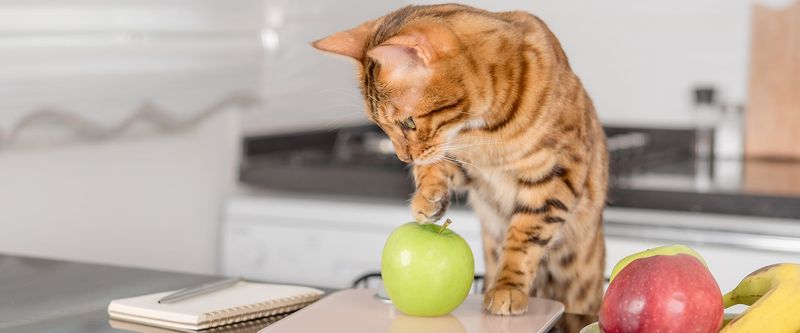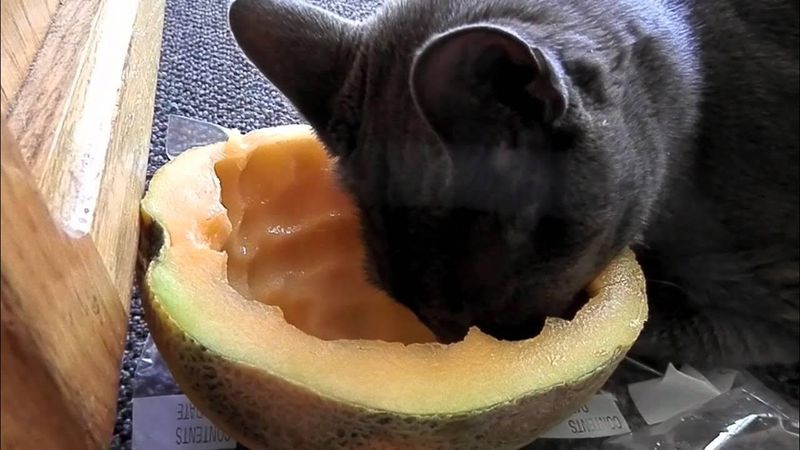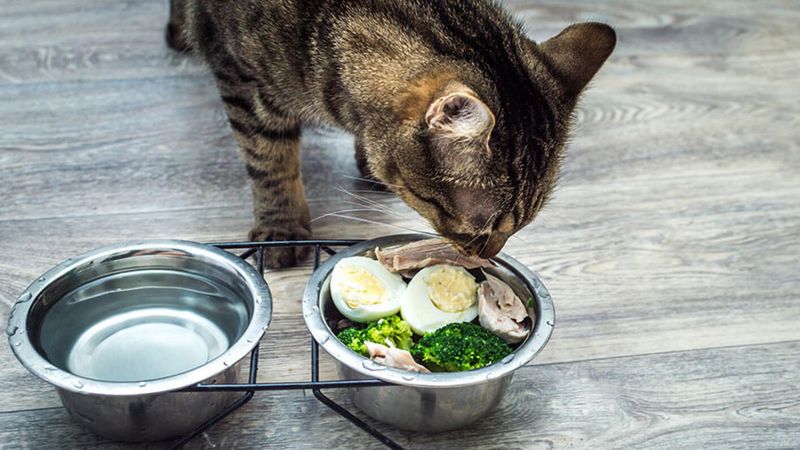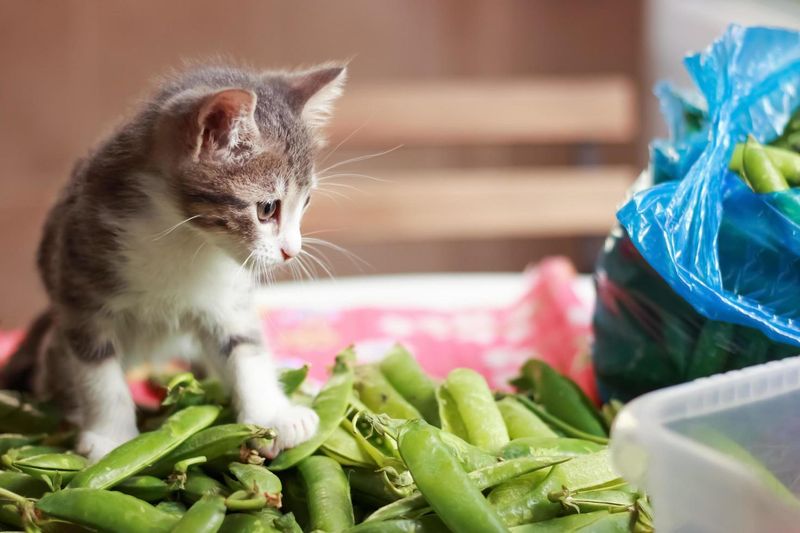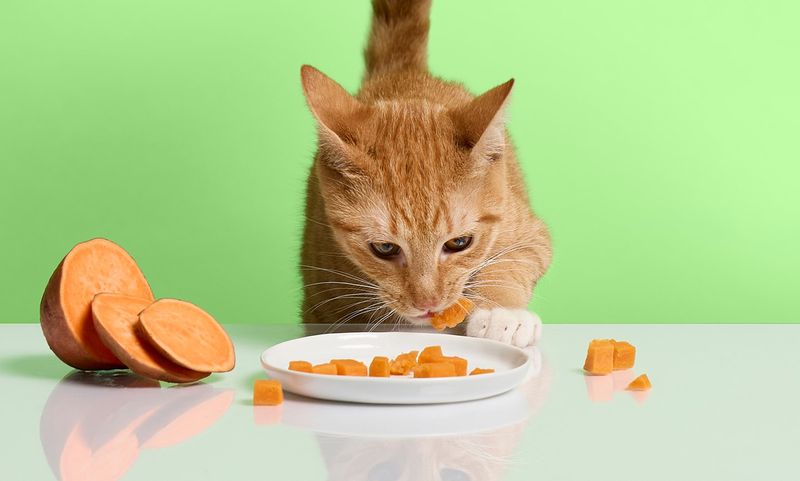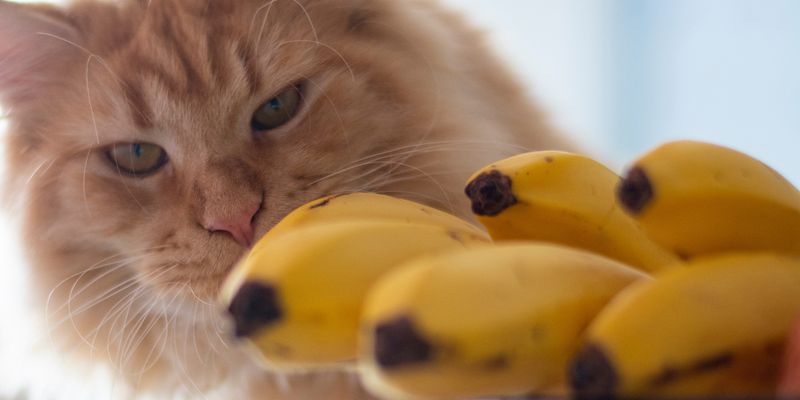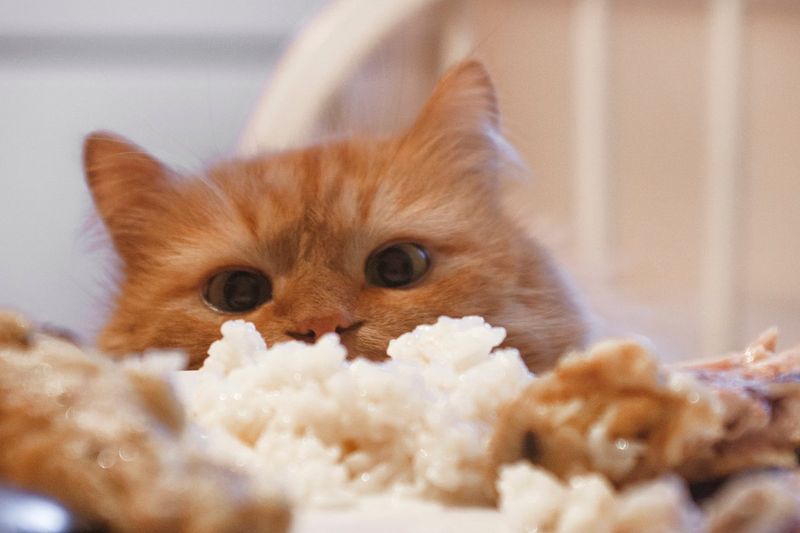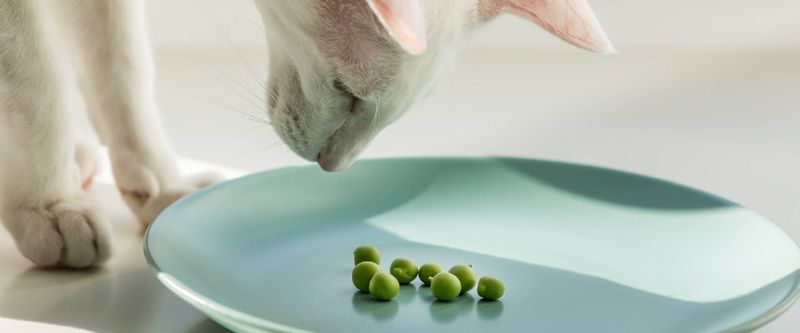📖 Table of Content:
- 1. Chocolate
- 2. Onions and Garlic
- 3. Alcohol
- 4. Caffeine
- 5. Grapes and Raisins
- 6. Xylitol
- 7. Fat Trimmings and Bones
- 8. Raw Eggs
- 9. Raw Fish
- 10. Milk and Dairy Products
- 11. Avocado
- 12. Macadamia Nuts
- 13. Yeast Dough
- 14. Cooked Chicken
- 15. Cooked Turkey
- 16. Cooked Carrots
- 17. Pumpkin
- 18. Blueberries
- 19. Apples
- 20. Cantaloupe
- 21. Cooked Eggs
- 22. Green Beans
- 23. Sweet Potatoes
- 24. Bananas
- 25. Plain Rice
- 26. Peas
As a cat owner, it’s important to be mindful of the foods you offer your feline friend. While cats can be curious eaters, not all human foods are safe for them. Some common foods may seem harmless but can cause serious health issues if consumed by your cat.
Understanding which foods pose risks and which are safe can help you make better choices for your cat’s diet. Certain ingredients might lead to severe reactions, from digestive problems to long-term organ damage. Ensuring your cat only consumes safe, nutritious options will support their overall well-being.
Keeping harmful foods out of your cat’s reach is just as crucial as offering them healthy alternatives. By making informed decisions about what they eat, you can avoid potential accidents or health concerns. Providing a balanced and safe diet will keep your cat happy and healthy for years to come.
1. Chocolate
Chocolate contains theobromine, which is toxic to cats. Even a small amount can lead to serious health issues. Cats may experience vomiting, diarrhea, and even seizures if they consume chocolate. It’s essential to keep all forms of chocolate out of a cat’s reach.
The darker the chocolate, the more dangerous it is due to higher theobromine levels. If your cat ingests chocolate, contact your veterinarian immediately. Remember, prevention is better than cure when it comes to chocolate and cats. Ensure all family members are aware of these risks to protect your pet.
2. Onions and Garlic
Whether raw, cooked, or powdered, onions and garlic are extremely toxic to cats. These vegetables can damage a cat’s red blood cells, leading to anemia. If a cat consumes onions or garlic, symptoms like lethargy, weakness, and reduced appetite may occur.
Garlic is considered five times as potent as onions for toxicity. Avoid feeding your cat table scraps seasoned with these ingredients. If you suspect your cat has ingested onions or garlic, prompt veterinary attention is crucial. These common kitchen ingredients can pose severe health risks to our feline friends.
3. Alcohol
Even small quantities of alcohol can be lethal to cats. Alcohol affects cats in much the same way it affects humans, but due to their smaller size, the impact is far greater. Symptoms of alcohol poisoning in cats include vomiting, diarrhea, disorientation, and trouble breathing. Always ensure that alcoholic beverages and food containing alcohol are out of reach.
Be cautious during gatherings where drinks might be left unattended. If you suspect your cat has consumed alcohol, seek veterinary care immediately. Protecting your cat from alcohol is vital for their health and safety.
4. Caffeine
Caffeine is harmful to cats and can cause restlessness, rapid breathing, heart palpitations, and tremors. Found in coffee, tea, and energy drinks, caffeine can lead to severe health issues in cats. Always keep caffeinated beverages and foods out of your cat’s reach.
Be mindful of leaving coffee cups unattended. Cats are naturally curious and may investigate anything left out in the open. If your cat shows signs of caffeine ingestion, such as hyperactivity or muscle tremors, consult your vet immediately. Keeping caffeine away from your cat is crucial for their well-being.
5. Grapes and Raisins
Though the exact cause remains unclear, grapes and raisins can lead to kidney failure in cats, even in small quantities. If your cat consumes them, be alert for symptoms like vomiting, diarrhea, and lethargy, and seek veterinary help immediately.
Always store these fruits securely and avoid using them as treats. Inform your family about the dangers associated with these fruits to prevent accidental ingestion. Ensuring grapes and raisins are out of reach is vital for your cat’s safety.
6. Xylitol
An artificial sweetener found in many sugar-free products, xylitol is extremely toxic to cats. Even small amounts can cause a rapid insulin release, leading to hypoglycemia. Symptoms include vomiting, loss of coordination, and seizures.
If your cat ingests xylitol, immediate veterinary attention is critical. Always check labels on food products and keep items containing xylitol away from your cat. Be particularly cautious with sugar-free gum and candies. Educating household members about the dangers of xylitol can help prevent accidental ingestion. Keeping your cat safe from xylitol is essential.
7. Fat Trimmings and Bones
Feeding cats fat trimmings and bones can lead to serious health issues. Fat, cooked or raw, can cause pancreatitis, an inflammation of the pancreas. Bones, on the other hand, can splinter and cause choking or gastrointestinal blockages.
Cats may be tempted by the aroma of these foods, but it’s crucial to resist sharing them. Always dispose of fat and bones safely, ensuring they are out of reach. If your cat shows signs of discomfort or distress after eating these, consult your vet. Keeping fat trimmings and bones away ensures your cat’s safety.
8. Raw Eggs
Raw eggs pose multiple health risks to cats. They can be a source of Salmonella, leading to gastrointestinal issues. Additionally, raw egg whites contain avidin, which inhibits the absorption of biotin, a vital B vitamin. This can lead to skin and coat problems in cats. Ensure eggs are thoroughly cooked before offering them to your cat.
Avoid feeding them raw eggs under any circumstances. If your cat shows signs of food poisoning, such as vomiting or diarrhea, contact your vet immediately. Keeping raw eggs out of your cat’s diet is a precautionary step for their health.
9. Raw Fish
Thiamine deficiency, caused by enzymes in raw fish, can lead to neurological problems like seizures in cats. Additionally, raw fish may contain dangerous parasites. Always ensure the fish you feed your cat is cooked to prevent these health risks.
If your cat shows signs of thiamine deficiency, seek veterinary care promptly. Ensuring fish is cooked not only enhances safety but also provides nutritional benefits.
10. Milk and Dairy Products
Many cats are lactose intolerant, meaning they lack the enzyme needed to digest lactose in milk and dairy products. Consumption can lead to upset stomach, diarrhea, and vomiting. While cats may be attracted to milk, it’s best to provide alternatives like lactose-free cat milk. Always monitor your cat for signs of lactose intolerance and adjust their diet accordingly. If symptoms persist, consult your veterinarian for guidance.
Providing safe and suitable treats ensures your cat stays healthy and comfortable. Keeping milk and dairy out of their diet prevents unnecessary digestive troubles.
11. Avocado
Avocado contains persin, which can be toxic to cats in large amounts. While cats are less susceptible than some other animals, ingestion can still lead to vomiting and diarrhea. The high fat content in avocados can also cause pancreatitis in cats. Always keep avocados out of reach, and avoid including them in your cat’s diet.
Be cautious with foods containing avocado, like guacamole. If your cat shows signs of avocado ingestion, such as gastrointestinal upset, contact your veterinarian. Protecting your cat from avocado ensures they remain safe and healthy.
12. Macadamia Nuts
Beware—macadamia nuts are highly toxic to cats, leading to symptoms like vomiting, weakness, and tremors. The exact toxin is unknown, but even small amounts can cause harm. Keep these nuts out of reach, especially in baked goods.
If your cat ingests macadamia nuts, seek veterinary care promptly. Ensuring your cat avoids macadamia nuts is crucial for their health. Always educate others in the household about these dangers.
13. Yeast Dough
If your cat consumes yeast dough, it can expand in their stomach, causing discomfort and bloating. As it ferments, it creates alcohol, potentially leading to alcohol poisoning. Watch for symptoms like vomiting and lethargy, and always keep dough away from your cat.
Preventing access to raw dough not only avoids gastrointestinal issues but also protects your cat from potential alcohol toxicity. Ensuring dough is off-limits is key to your cat’s safety.
14. Cooked Chicken
Cats are obligate carnivores, and cooked chicken is a fantastic source of protein for them. Ensure the chicken is boneless and skinless to avoid any choking hazards or digestive issues. Small, bite-sized pieces are perfect for your feline companion. Chicken provides essential nutrients like taurine, which is crucial for a cat’s heart health.
When preparing chicken, avoid adding any seasonings or spices that could upset your cat’s stomach. It’s best to serve it plain, ensuring it’s fully cooked to eliminate any risk of bacterial contamination. Monitor your cat’s reaction to ensure they enjoy this treat.
15. Cooked Turkey
A delicious protein source, cooked turkey is a perfect alternative to chicken in your cat’s diet. It should be served boneless, skinless, and chopped into small pieces. Turkey is full of vitamins and minerals like zinc and B vitamins, which help boost your cat’s immune system and vitality.
As with any new food, it’s important to serve it plain and unseasoned, as additives can be harmful to cats. Enjoy watching your cat relish this tasty and nutritious meal option.
16. Cooked Carrots
While cats are carnivores, they can occasionally enjoy vegetables like carrots. Carrots are an excellent source of beta-carotene, which is converted into vitamin A, supporting healthy vision in cats. To prepare, cook the carrots until soft, then slice them into small pieces to prevent choking hazards.
Cats may enjoy the slightly sweet taste and soft texture. Always introduce new foods slowly to see how your cat reacts. Despite being safe, carrots should not replace the primary meat component of your cat’s diet, instead serving as a healthy and fun treat.
17. Pumpkin
Pumpkin is a fiber-rich food that can aid in a cat’s digestive health. It’s particularly helpful for cats experiencing constipation or loose stools. Ensure the pumpkin is plain, without added sugars or spices, as these can upset your cat’s stomach. Canned or cooked fresh pumpkin is ideal.
Introduce it in small amounts to see how your cat enjoys this earthy, slightly sweet flavor. Its high fiber content can also help maintain a healthy weight by making your cat feel fuller for longer. Remember, pumpkin should complement their diet, not replace regular meals.
18. Blueberries
These tiny berries are not just a superfood for humans; cats can enjoy them too! Blueberries are rich in antioxidants, which can support your cat’s overall health by combating free radicals. While cats don’t require fruits in their diet, the occasional blueberry can be a fun treat. Ensure the blueberries are fresh and washed thoroughly to remove any pesticide residues.
You can offer them whole or mash them slightly for easier consumption. Monitor your cat’s response, as not all cats will be interested in this fruit. Treat blueberries as an occasional snack, not a dietary staple.
19. Apples
A crisp apple can be a delightful treat for your cat, but make sure to remove the seeds and core since they contain cyanide. Offering the apple in thin slices or small cubes will make it a safer, more enjoyable snack.
They are a good source of vitamins A and C, supporting your cat’s immune system and overall health. While cats may not naturally gravitate towards fruit, offering a small piece of apple can be an interesting and safe experience. Remember, moderation is key when introducing any new food.
20. Cantaloupe
This sweet melon, cantaloupe, is full of antioxidants and vitamins A and C, making it a healthy snack for cats. Always discard the rind and seeds, offering only the soft, juicy flesh in small, easy-to-eat pieces.
The natural sugars in cantaloupe can be appealing, but should be given in moderation to avoid digestive issues. As with introducing any new treat, observe your cat’s reaction and adjust accordingly. Cantaloupe can be a refreshing snack, especially on warm days, adding a burst of flavor to your cat’s palate.
21. Cooked Eggs
Eggs are a protein powerhouse that can benefit your cat’s diet when cooked properly. Serve them scrambled or boiled, ensuring they are fully cooked to prevent any risk of salmonella. Eggs provide essential amino acids and are rich in vitamins like B12, which supports your cat’s nervous system. Introduce eggs in small quantities, as a supplement to your cat’s regular diet, not as a main course.
Avoid adding salt, butter, or other seasonings, as these can be harmful. Watching your cat enjoy this simple yet nutritious treat can be a delight for both of you.
22. Green Beans
Low in calories and high in fiber, green beans can be a beneficial addition to your cat’s diet, supporting digestion and weight control. Be sure to serve them cooked and cut into small pieces to avoid choking hazards.
The crunchy texture can be interesting for cats, although not every feline will take to them. Green beans should not replace your cat’s main protein source but can be offered as a nutritious supplement. If your cat shows interest, this vegetable might become a favorite addition to their occasional treats.
23. Sweet Potatoes
Packed with fiber and beta-carotene, sweet potatoes are a healthy option for cats, supporting digestive health and offering antioxidants. Cook them fully, remove the skin, and mash the flesh to make it easier for your cat to eat.
The natural sweetness might appeal to some cats, but always introduce this treat gradually. As with any non-meat food, sweet potatoes should be given in moderation. They offer a healthy, low-calorie option, perfect for adding variety to your cat’s diet when used as an occasional treat.
24. Bananas
Cats can occasionally enjoy bananas, which are rich in potassium and fiber to support muscle and digestive health. Slice the banana into small pieces for easy consumption, though some cats may not care for the fruit’s texture or taste.
Bananas should be given sparingly due to their high sugar content. Monitor your cat’s reaction, and if they seem to enjoy it, bananas can be a fun and healthy treat. Remember, fruits are not essential to a cat’s diet, so always serve them in moderation.
25. Plain Rice
Plain rice is a simple and safe option that can aid in soothing an upset stomach for cats. It is easy to digest and can provide quick energy. Serve it cooked and unseasoned, as spices and additives can be harmful. Rice should not become a regular meal replacement but can be helpful during periods of digestive distress.
Mix a small amount of rice with your cat’s regular food to encourage consumption. Always ensure the rice is sufficiently soft to avoid any potential digestive blockages. Monitor your cat’s response and adjust the amount as needed.
26. Peas
A small, nutritious vegetable, peas are packed with vitamins B1, C, and K, helping your cat’s metabolism and immune system. Offer them fresh or cooked, ensuring they’re soft to avoid choking, and use them as an occasional treat to add variety to your cat’s diet.
Some cats may enjoy playing with these round morsels before eating them. As with any treat, offer peas in moderation and observe your cat’s reaction. They can be a fun and healthy addition to a balanced diet.
